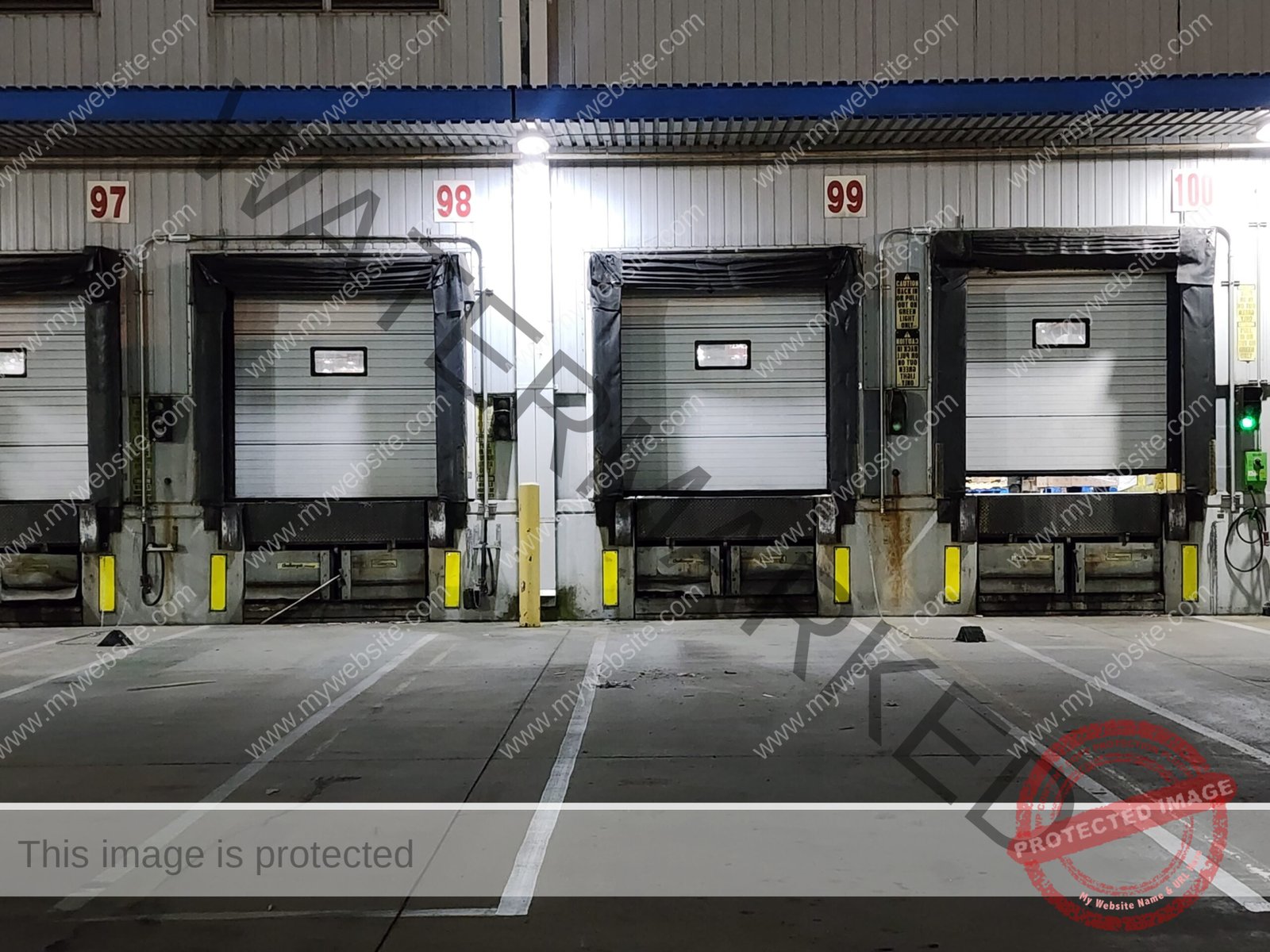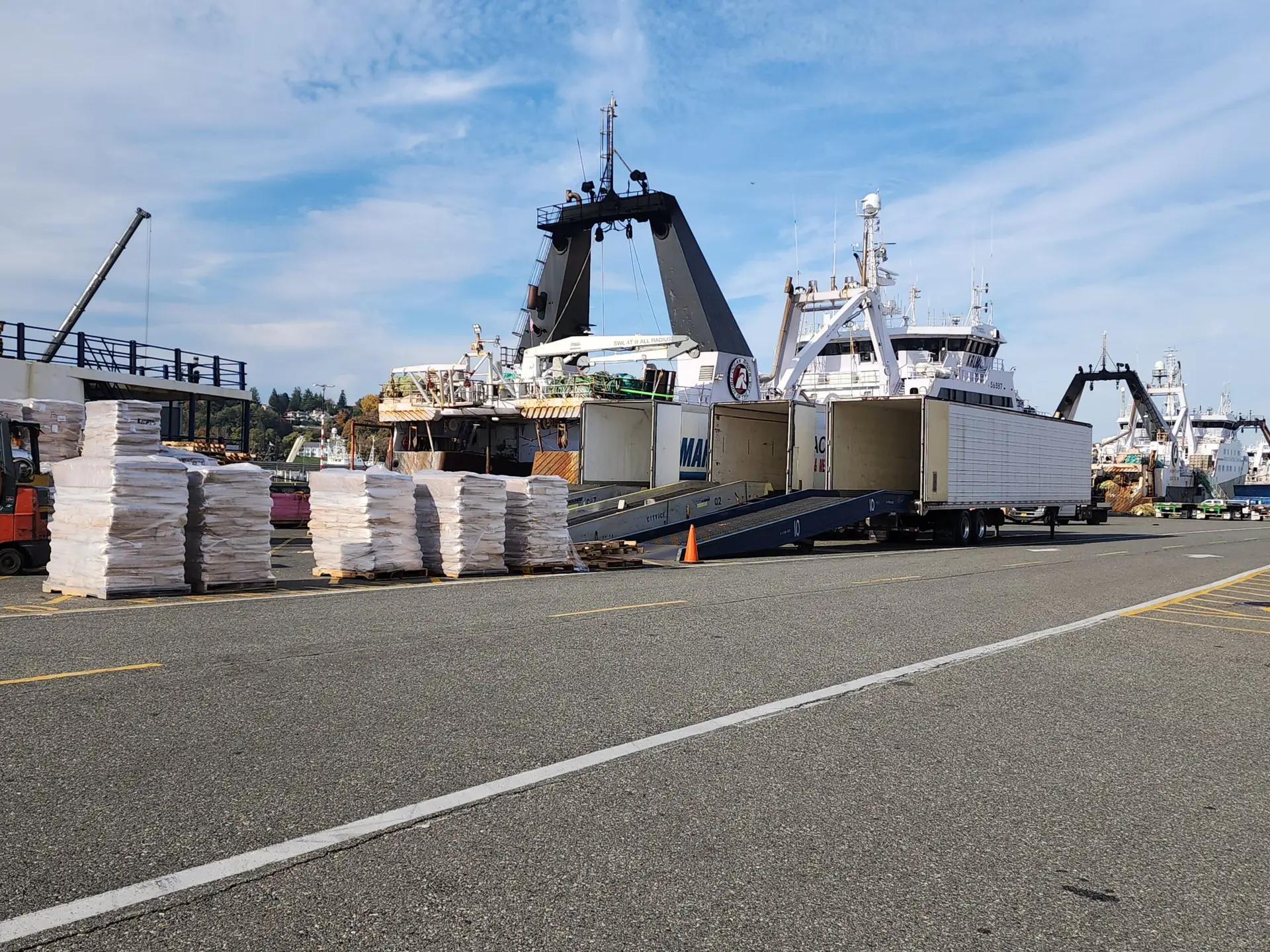
One of the biggest costs for businesses is transportation; however, many companies overlook the cost-saving potential of full truckload shipping. Specifically, businesses that master the intricacies of truckload shipping rates, carrier relationships, and operational efficiencies gain a distinct market advantage. While basic rate negotiations are important, understanding hidden fee structures, strategic consolidation, and dock optimization save money.
Minimizing handling with FTL services reduces the risk of goods loss or damage. In addition, Reducing handling frequency reduces the risk of damage or mishandling. The fewer steps needed to load and unload items may reduce handling, which can shorten transit times.
With tracking and proactive communication, FTL services improve transparency and customer service. This feature provides real-time vehicle location and delivery date data to help customers track their shipments. Collaboration and strategic planning improve reliability.
Providing specialized and direct transportation options makes FTL services efficient at delivering goods quickly. FTL services use full truckloads to reduce stops and transfers, which speeds up delivery and ensures on-time arrival.
To meet customer needs, FTL services use flatbeds, reefers, and other special trailers. This ensures that their demands are successfully and efficiently fulfilled. In 2023, there were 1.86 million companies with trucks on the road.
Initially, via the utilization of truck capacity, there is a potential to decrease the number of trucks on the road, which would therefore lead to a reduction in carbon emissions. Moreover, FTL providers often utilize strategic route planning techniques to optimize fuel efficiency and decrease fuel usage. In 2020, semi-trucks averaged 6.6 miles per gallon. This is a metric that most companies aim to enhance. Furthermore, several FTL businesses are integrating environmentally conscious measures into their operations. These measures include the adoption of alternative fuels and the implementation of Diesel Exhaust Fuel (DEF) requirements.
Many companies focus on full truckload shipping base rates, but there are many other costs. Logistics professionals who know all the costs can save more than competitors.
The core of FTL pricing starts with a fundamental rate, typically determined per mile or as an overall door-to-door charge. However, this foundational number is just one element of a broad pricing equation. A few key components work together to determine the total cost of your Full Truckload shipment.
The factors here explain why two shipments covering the same distance have significantly different expenses. Shipping a dry van from Florida to Atlanta costs around $400 in January, but this figure increases to about $1,000 in July when the orange season reaches its peak. Routes with more freight volume than available drivers attract higher rates, as carriers want to maximize their revenue.
Accessorial charges can represent 25–30% of your overall shipping expenses, highlighting their importance in an accurate cost analysis. These fees indicate additional services that go beyond the typical transportation costs and frequently emerge as unforeseen line items following delivery.
Common accessorial charges include detention fees (50-75 per hour) for drivers who exceed the two-hour waiting period. Drivers staying overnight due to delays may incur $250 to $500 in layover fees. Lastly, third-party loading and unloading labor incurs lumper fees. Furthermore, companies often face fees associated with liftgate service, which can range from $100 to $150, as well as costs for special handling needs and residential deliveries.
It is important to recognize that many of these charges stem from inadequate planning or ineffective communication. Redelivery is the most expensive accessorial charge because the carrier must repeat the task, losing other revenue streams. Conversely, clearly communicating quote requirements helps carriers plan and save money.
Empty trailer space represents an often overlooked profit leak in full truckload shipping operations. Studies show that 8% of all stock (approximately $163 billion) ends up wasted annually, making trailer utilization a critical factor in controlling transportation expenses. Companies that implement strategic consolidation techniques gain significant advantages over competitors still shipping with partially filled trailers.
The financial benefits gained from optimized trailer space usage include much more than mere transportation cost reductions. Research indicates that effectively performed trailer utilization strategies have the potential to improve fleet capacity by a margin of 1-20%. In a scenario involving a fleet comprising 10,000 trailers, it is possible that eliminating the use of 2,000 trailers, each valued at around $40,000, could lead to a significant decrease in capital expenditure amounting to $80 million.
Case studies about Nussbaum that used trailer utilization methods show ROIs of 653.30% and payback periods of 0.38 years. A company used a trailer utilization platform to bill $363,000 in detention charges in 19 months, forecasting a $2 million recovery over a decade.
In addition to the direct cost savings, improved efficiency produces noteworthy operational advantages. Furthermore, there are diminished carbon emissions, a reduction in damaged goods, increased visibility of inventory, and improved oversight of warehouse control measures. Businesses that employ thorough ROI assessments for their trailer utilization strategies consistently achieve better results compared to competitors who continue to engage in inadequate loading practices.
Multi-vendor consolidation is a strategic method to combine smaller Less-Than-Truckload (LTL) shipments from multiple suppliers into more cost-effective Full Truckload (FTL) shipments. This technique tackles a core inefficiency in transportation—LTL shipments typically entail more touchpoints and extended transit durations compared to FTL freight.
Businesses that lack the volume to fill trailers can work with other suppliers shipping to similar destinations through consolidation programs. This strategy also reduces dock congestion by reducing truck traffic at distribution centers, improving operational efficiency.
Retail consolidation programs are particularly effective. Consolidating supplier orders into truckload shipments maximizes trailer utilization and improves retailers’ on-time delivery standards. This approach helps businesses reduce compliance penalties, improve landed cost oversight, and reduce carbon emissions by optimizing transportation efficiency.
It is essential for industry leaders to acknowledge that strategies for full truckload shipping should be tailored to meet the unique needs of different industries. Every industry encounters distinct logistics challenges that necessitate tailored strategies to maximize cost efficiency and sustain a competitive edge.
Retail businesses have the potential to significantly reduce inventory carrying costs, which include expenses related to storage space, capital investment, inventory services, and associated risks, by employing strategic full truckload (FTL) deployment. Making use of direct FTL shipments instead of multiple LTL deliveries allows retailers to reduce in-transit time and simplify their logistics operations. High-demand retail settings, where quick restocking affects customer satisfaction, benefit from this method. Effective use of full truckloads allows retailers to minimize stockouts and simultaneously boost inventory turnover rates, which in turn enhances cash flow management. Numerous retailers are starting to use supply chain visibility technology for improving the accuracy of inventory predictions, thereby reducing excess safety stock that can constrain capital resources.
Modern temperature-controlled full truckload shipping is essential for the food and beverage industry to maintain product integrity throughout the distribution chain. In this industry, maintaining temperature integrity is of the highest priority; even slight deviations in temperature can jeopardize food quality, lead to load rejections, and result in expensive product disposal. Creative businesses in this sector use proficient telematics systems to oversee the performance of refrigeration units in real time. The integration of advanced technology, particularly AI and machine learning applications, has greatly enhanced cold chain logistics. These innovations have led to improved freight capacity allocation and facilitated precise demand planning. The implementation of these innovations allows businesses to uphold stringent temperature standards while also improving transportation cost profitability.
Freight damage incurs a range of concealed costs that branch out beyond mere replacement expenses. These include the ramifications of missed delivery deadlines, the potential for customer dissatisfaction, and the complications arising from inventory discrepancies. Effective palletizing techniques are necessary for preventing damage. The procedure involves stacking packaged products in aligned columns instead of pyramid shapes, positioning heavier boxes at the bottom, and applying stretch wrap to reduce shifting. Moreover, implementing the “Three-Strip Taping Method” during the sealing process ensures that the contents of packages remain securely enclosed. To ensure maximum protection, it is advisable to use corner boards to safeguard susceptible edges, along with suitable cushioning materials such as bubble wrap or foam.
The manufacturing sector achieves remarkable savings through Just-in-Time (JIT) delivery systems powered by full truckload transportation. This approach eliminates unnecessary stockpiling by ensuring materials arrive precisely when needed in production. Manufacturers implementing JIT principles report a reduction of up to 50% in the cost of storing inventory. The system functions by synchronizing procurement, production, and distribution processes through
Full-truckload shipping offers substantial possibilities for businesses prepared to venture beyond simple cost factors. Full Truckload services offer a cost-effective solution, faster delivery times, and a reduced risk of damage and loss when compared with less-than-truckload shipments. These services enhance supply chain efficiency, strengthen capacity and flexibility, elevate customer service, and provide substantial benefits to sustainability and environmental considerations.




